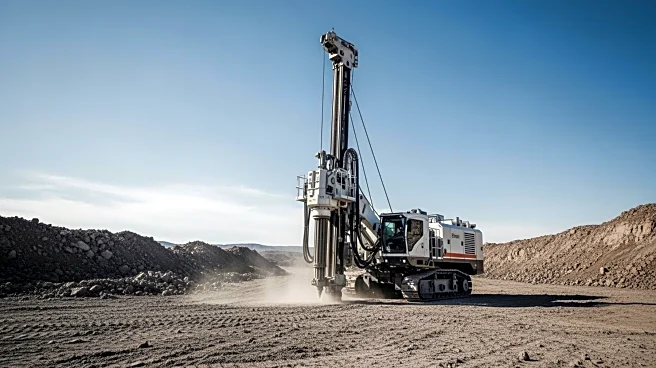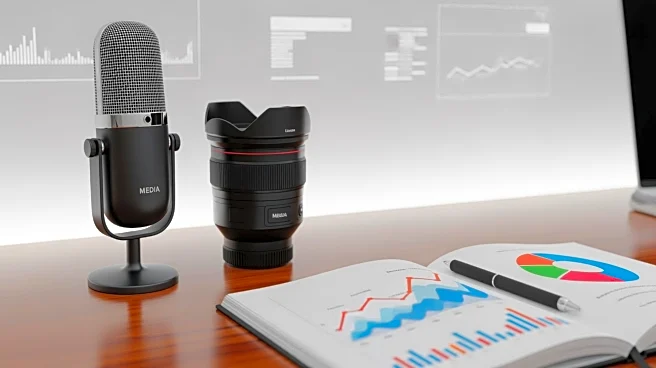What's Happening?
Epiroc's Pit Viper, a surface blasthole drill rig, marks its 25th anniversary, with a decade of autonomous operations enhancing productivity and reducing emissions. The Pit Viper has drilled over 90 million
meters autonomously, achieving a 17% higher utilization rate compared to manual operations. The autonomous technology has improved depth accuracy by 85% and spatial accuracy by 60%, avoiding overdrill waste. Epiroc's President and CEO, Helena Hedblom, highlights the rig's reliability and continuous upgrades, which ensure safety, productivity, and energy efficiency for mining customers globally.
Why It's Important?
The advancements in autonomous drilling technology by Epiroc have significant implications for the mining industry, particularly in terms of operational efficiency and environmental impact. By reducing CO2 emissions equivalent to removing 50,000 passenger vehicles annually, the Pit Viper contributes to sustainable mining practices. The increased accuracy and productivity of autonomous operations can lead to cost savings and improved resource management for mining companies. This development underscores the growing trend towards automation in heavy industries, potentially influencing future investments and technological innovations.
What's Next?
Epiroc is likely to continue enhancing the capabilities of the Pit Viper and other drilling rigs, focusing on further automation and energy efficiency improvements. Mining companies may increasingly adopt autonomous technologies to optimize operations and meet environmental standards. Stakeholders, including industry leaders and environmental groups, may engage in discussions on the broader adoption of such technologies and their role in sustainable mining practices.
Beyond the Headlines
The shift towards autonomous operations in mining raises ethical and workforce considerations, as automation may impact employment in traditional roles. Additionally, the reliance on technology for critical operations necessitates robust cybersecurity measures to protect against potential threats. The long-term environmental benefits of reduced emissions could contribute to global efforts in combating climate change.











